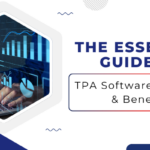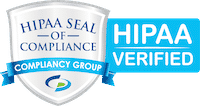Claims Software Systems: The Future of Smart Claims Handling
April 23, 2025
Insurance companies and Third-Party Administrators (TPAs) that handle sensitive customer personal information in the digital age have two primary concerns: data security and regulatory compliance. Maintaining strong security protocols and compliance standards is necessary in light of the increasing number of cyber threats and changing regulatory requirements. This article explores the important role of TPA software in protecting data and maintaining compliance within the realm of claims management.
The Importance of Data Security
Data security is necessary for effective claims management, especially in an era of increased cyber threats and data breaches. Insurance companies and TPAs handle a large amount of sensitive information, including personal details, medical records, and financial data, making them main targets for hackers.
Any leak of this sensitive information jeopardizes customer trust while also exposing organizations to regulatory sanctions and reputational damage. So, strong data security measures are imperative to protect against unauthorized access, data theft, and malicious attacks.
Key Security Features of TPA Software
TPA software has several security features designed to protect sensitive information throughout the claims software.
These features may include:
1. Encryption
Encryption techniques are used to secure data in transit and at rest, ensuring that even if intercepted, unauthorized users cannot understand it.
2. Access Controls
Implementing role-based access controls may reduce the risk of unauthorized access by limiting access to important data based on users’ roles and permissions.
3. Multi-Factor Authentication
Multi-factor authentication involves putting users through numerous identity verification processes, such as passwords, biometrics, or one-time codes, to provide an additional layer of protection.
4. Audit Trails
Keeping detailed audit logs that document user activity in the system and allow companies to keep an eye out for any suspicious or unauthorized behavior.
5. Regular Updates and Patch Management
Ensure that the software is routinely updated with the most recent security patches and fixes to resolve vulnerabilities and reduce possible security concerns.
Compliance Considerations
One crucial component of claims management software for insurance companies and TPAs is compliance with legal standards, in addition to data security. Many rules apply to the insurance sector, some of which are as follows:
1. Accountability and Portability of Health Insurance Act (HIPAA)
Places severe restrictions on the handling and dissemination of protected health information (PHI) and mandates the protection of patient medical data.
2. The GDPR, or General Data Protection Regulation
Imposes strict adherence to data protection standards, such as accountability, openness, and the right to erasure, on enterprises that handle the personal data of inhabitants of the European Union.
3. Payment Security Card Protocol (PCSP)
Oversees the processing of credit card data to stop fraud and protect credit card transactions.
4. State and Federal Regulations
Insurance firms and TPAs must comply with several state and federal rules regarding data privacy, security, and breach reporting.
TPA software plays a crucial role in easing compliance with these rules by including built-in capabilities and functionalities that meet regulatory requirements.
1. HIPAA Compliance Tools
Including features like access controls, audit trails, and encryption mechanisms to guarantee compliance with HIPAA’s strong PHI security standards.
2. GDPR Compliance Capabilities
Offering tools to comply with GDR regulations for managing data subject rights, getting consent, and putting privacy by design and default into practice.
3. PCI DSS Compliance Features
Securing cardholder data during claims transactions by putting in place secure payment processing features and following PCI DSS guidelines.
Insurance companies and TPAs may reduce regulatory risks, save expensive penalties, and exhibit their commitment to data protection by using TPA software equipped with these compliance capabilities.
Conclusion
In today’s increasingly digital and regulated world, insurance companies and TPAs must prioritize data security and compliance in claims software. TPA software is an essential tool for guaranteeing the security of sensitive customer information and regulatory compliance.
Organizations may increase client confidence, protect data integrity, and maintain regulatory compliance by installing strong security measures such as encryption, access restrictions, and multi-factor authentication, as well as introducing compliance elements customized to specific requirements.
In doing so, they not only reduce the risk of data breaches and regulatory fines but also strengthen their image as trusted guardians of customer information in the insurance sector.
How Health Claims Management Software Transforming The Industry?
February 7, 2025How Claims Software Can Transform Your Claims Process?
January 29, 2025The Need For Healthcare Claims Management Software
January 13, 2025Reasons You Should Invest in Claims Management Software
January 7, 2025The Essential Guide To TPA Software Features & Benefits
December 24, 2024Claims Management Software: Key To Streamlining Your Business
December 18, 2024How TPA Software Solutions Transformed Medical Claims Management?
November 20, 2024









